Taylor Swift reacquires original recordings of first six albums in landmark music rights deal
Taylor Swift reacquires masters for first six albums, plans to reissue alongside Taylor’s Version recordings.
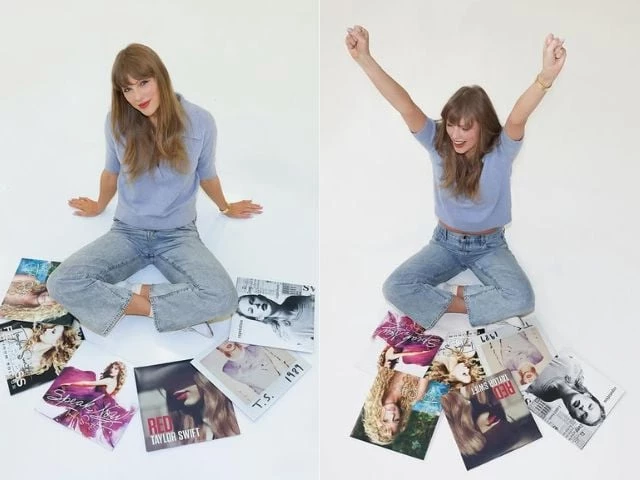
Taylor Swift has reclaimed ownership of her first six albums, purchasing the master recordings from Shamrock Capital in a deal described by the singer as a “greatest dream come true.”
This marks a significant milestone after six years of complex negotiations and ownership changes since her early catalog was first sold without her consent.
The six albums, originally released under Big Machine Records, had been sold to Scooter Braun’s Ithaca Holdings in 2019 and subsequently acquired by Shamrock Capital a year later. Swift’s recent purchase, reportedly for a nine-figure sum, was finalized through her Nashville-based management team, with sources noting the price was fair and reasonable—far below inflated estimates circulated by some media.
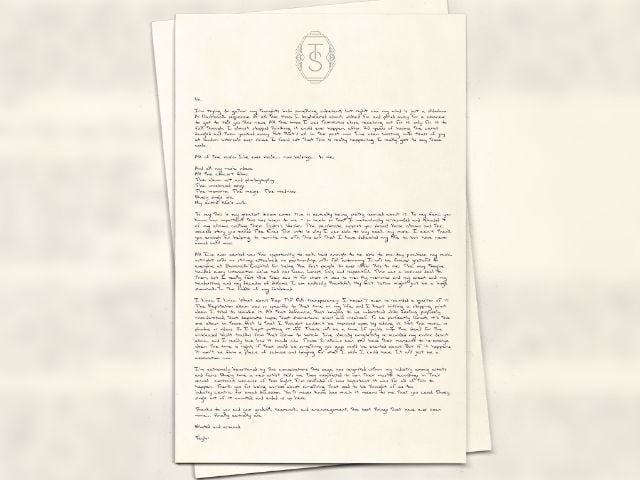
In a handwritten letter to fans, Swift expressed deep joy over finally owning her early music. “All of the music I’ve ever made… now belongs… to me,” she wrote, highlighting that her acquisition includes not only the albums but also related visuals, concert films, and artwork.
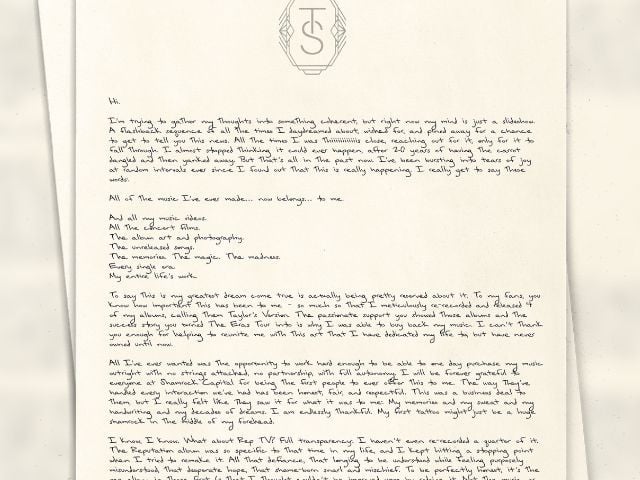
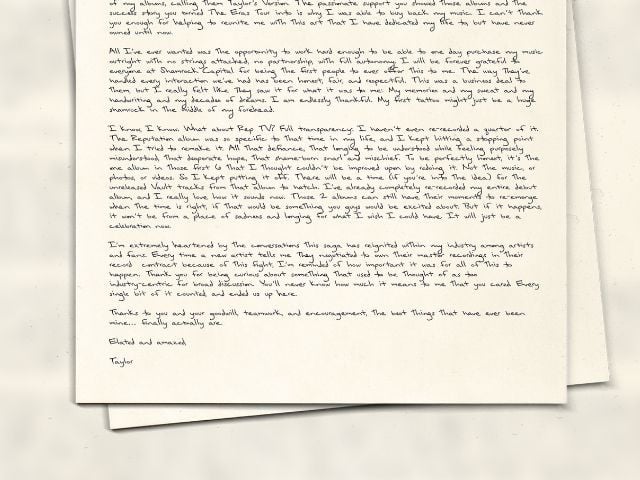

The singer plans to continue releasing her re-recorded “Taylor’s Version” editions alongside the original recordings. These re-recordings began as a response to the original masters’ sale and have since become a major part of her artistic and commercial strategy, fueling her blockbuster Eras Tour. Two re-recorded albums remain unreleased: “Reputation (Taylor’s Version)” and a new version of her debut album. Swift clarified that this new deal will not delay the release of those editions, although she noted that “Reputation” has been challenging to re-record, given the album’s personal significance.
The saga began in June 2019 when Braun announced his acquisition of Big Machine’s catalog, a move Swift criticized publicly for its lack of transparency and alleged bullying by Braun’s management clients. Swift had previously attempted to purchase her masters but found the terms prohibitive, including requirements that would have forced her to stay with Big Machine Records.
The controversy sparked widespread discussion about artists’ rights, with Swift’s decision to re-record her music setting a precedent in the industry. The re-recordings, featuring bonus tracks and updated production, have allowed her to regain control over her work and licensing opportunities.
A source close to the deal emphasized that no external party encouraged the sale to Swift and denied Scooter Braun’s involvement in the recent transaction. The ownership transfer reflects a new chapter in Swift’s career, underscoring her commitment to owning her creative output.
Since leaving Big Machine, Swift has partnered with Universal Music Group, securing ownership of all new masters while UMG handles distribution. The reclaimed catalog, combined with her ongoing releases, reinforces her position as one of the most influential and commercially successful artists in music history.

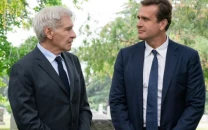







1720697346-0/taylor-travis-(2)1720697346-0-208x130.webp)
1737192425-0/Untitled-design-(18)1737192425-0-208x130.webp)












COMMENTS
Comments are moderated and generally will be posted if they are on-topic and not abusive.
For more information, please see our Comments FAQ